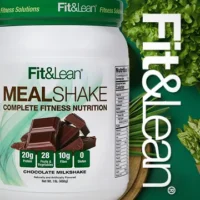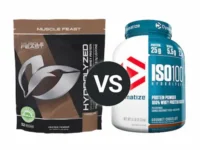Knowledge BaseYou're Questions Answered
Is plant protein powder better than whey?
Comparing plant protein powder and whey protein powder is not a straightforward task, as both have their own unique benefits and disadvantages. Here is a summary of some of the key benefits and disadvantages of plant protein powder compared to whey protein powder:
Benefits of Plant Protein Powder:
- Plant-based: Plant protein powder is a plant-based source of protein, making it a good option for individuals who follow a vegan or vegetarian diet.
- Lower in calories: Plant protein powder typically has a lower calorie content compared to whey protein powder, making it a good option for individuals who are looking to lose weight or maintain a healthy weight.
- Hypoallergenic: Plant protein powders, such as pea or rice protein, are typically hypoallergenic and less likely to cause allergic reactions compared to dairy-based protein powders such as whey.
- Wide variety: Plant protein powders come from a variety of sources, including soy, hemp, pea, rice, and others, giving individuals a range of options to choose from based on their specific needs and preferences.
Disadvantages of Plant Protein Powder:
- Lower in BCAAs: Plant protein powders are typically lower in branched-chain amino acids (BCAAs), which are essential for building muscle, compared to whey protein powder.
- Less bioavailable: Plant protein powders are also less bioavailable, meaning they are not as easily absorbed and utilized by the body compared to whey protein powder.
- Potentially lower in some essential amino acids: Depending on the specific type of plant protein powder, it may be lower in some essential amino acids compared to whey protein powder.
The best type of protein powder depends on the individual's needs and preferences. Plant protein powder may be a better option for individuals who are looking for a plant-based source of protein or who have concerns about the potential health effects of consuming dairy products. Whey protein powder, on the other hand, may be a better option for individuals who are looking to build muscle and improve their athletic performance, or who have concerns about the potential health effects of consuming soy.
Related Questions

Your Answer
We are a participant in the Amazon Services LLC Associates Program, an affiliate advertising program designed to provide a means for us to earn fees by linking to Amazon.com and affiliated sites.






